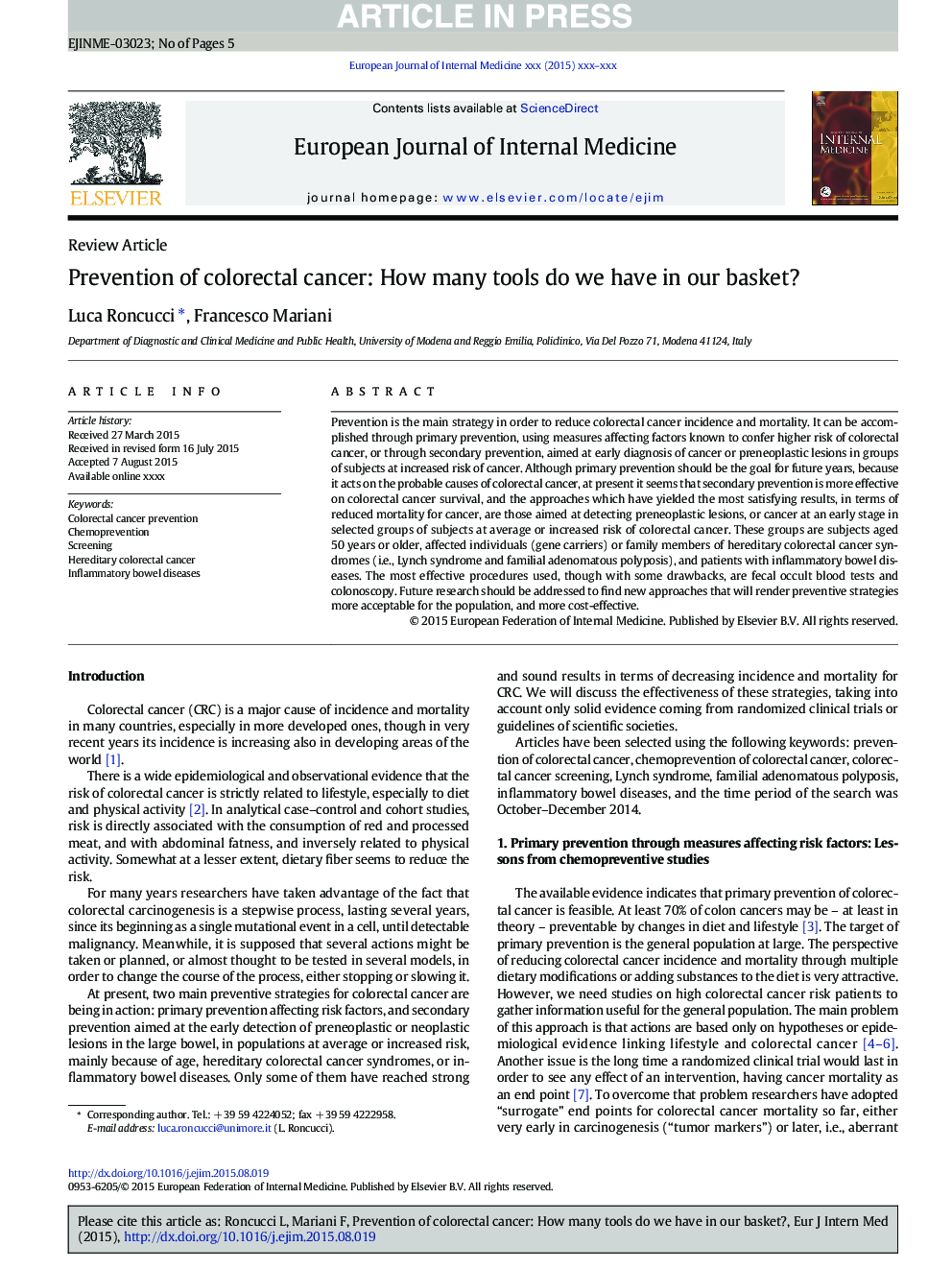| Article ID | Journal | Published Year | Pages | File Type |
|---|---|---|---|---|
| 6151608 | European Journal of Internal Medicine | 2015 | 5 Pages |
Abstract
Prevention is the main strategy in order to reduce colorectal cancer incidence and mortality. It can be accomplished through primary prevention, using measures affecting factors known to confer higher risk of colorectal cancer, or through secondary prevention, aimed at early diagnosis of cancer or preneoplastic lesions in groups of subjects at increased risk of cancer. Although primary prevention should be the goal for future years, because it acts on the probable causes of colorectal cancer, at present it seems that secondary prevention is more effective on colorectal cancer survival, and the approaches which have yielded the most satisfying results, in terms of reduced mortality for cancer, are those aimed at detecting preneoplastic lesions, or cancer at an early stage in selected groups of subjects at average or increased risk of colorectal cancer. These groups are subjects aged 50Â years or older, affected individuals (gene carriers) or family members of hereditary colorectal cancer syndromes (i.e., Lynch syndrome and familial adenomatous polyposis), and patients with inflammatory bowel diseases. The most effective procedures used, though with some drawbacks, are fecal occult blood tests and colonoscopy. Future research should be addressed to find new approaches that will render preventive strategies more acceptable for the population, and more cost-effective.
Keywords
Related Topics
Health Sciences
Medicine and Dentistry
Medicine and Dentistry (General)
Authors
Luca Roncucci, Francesco Mariani,
